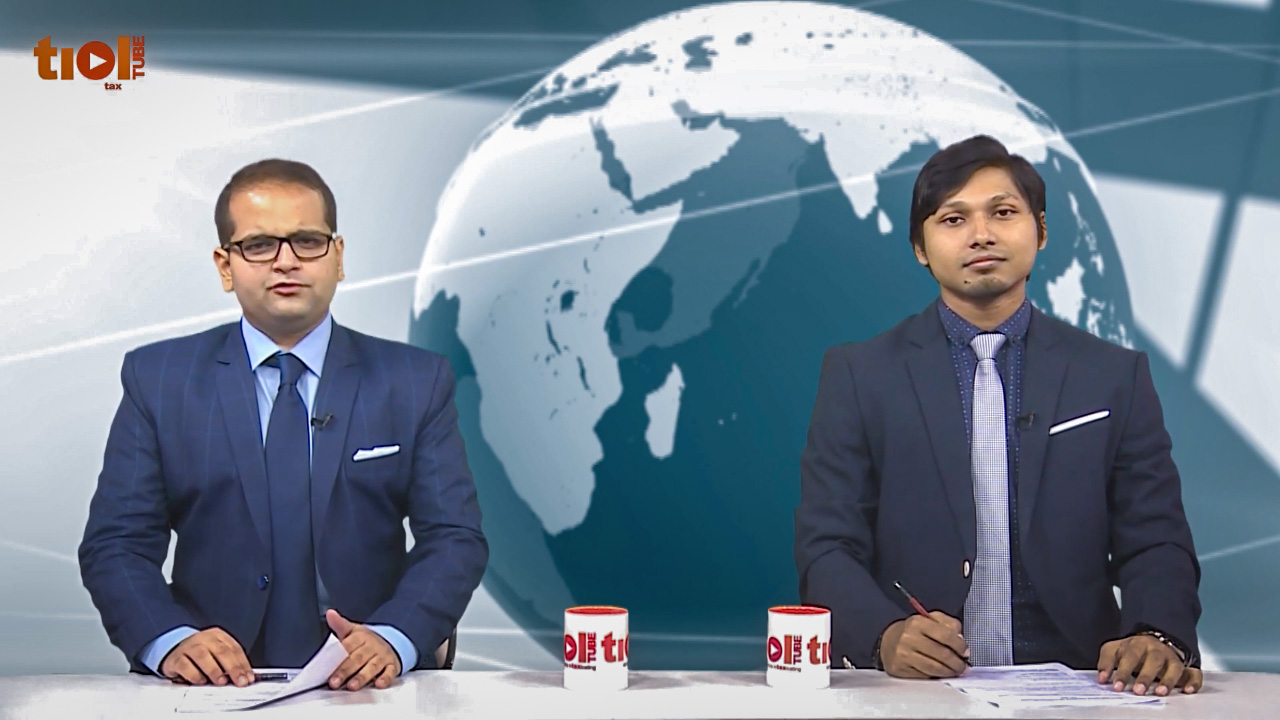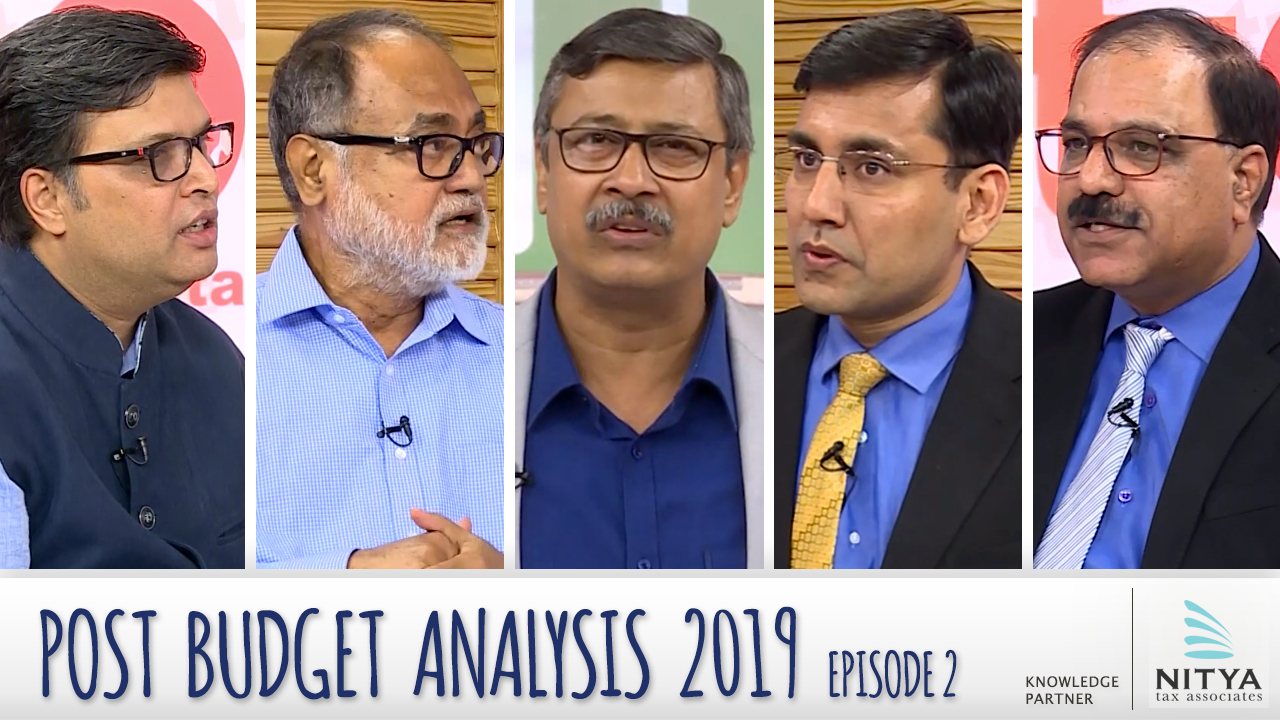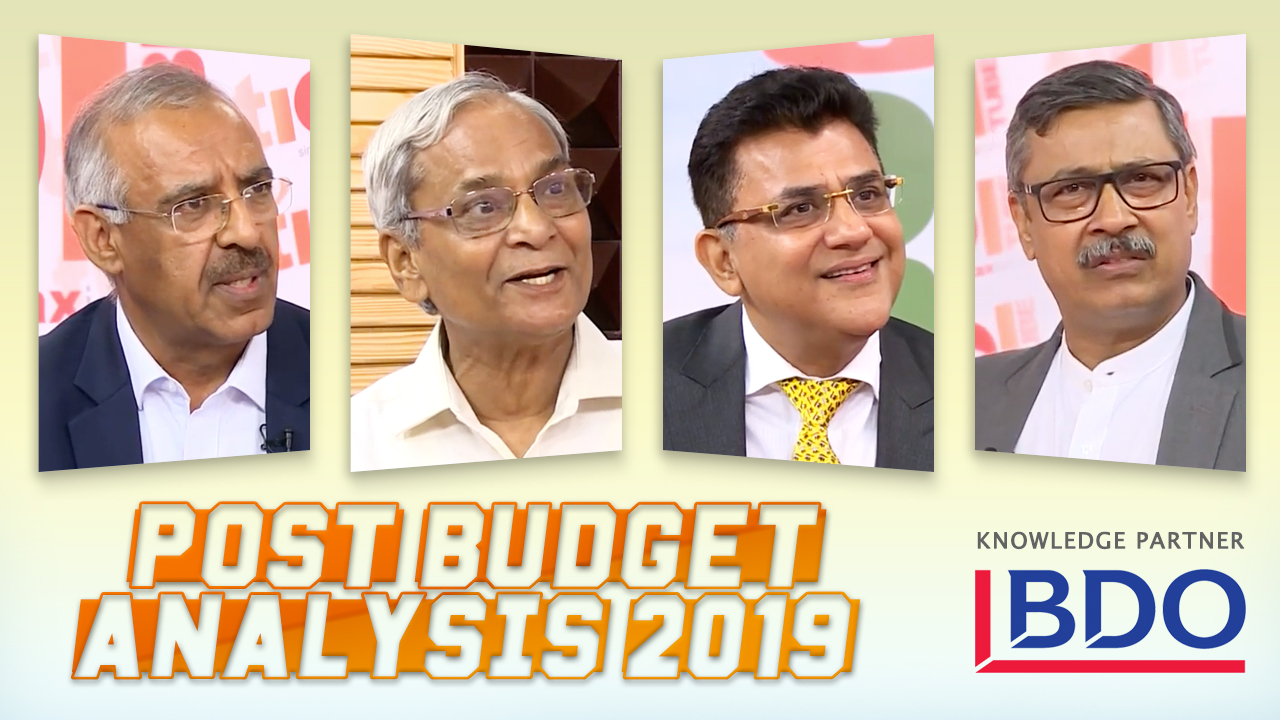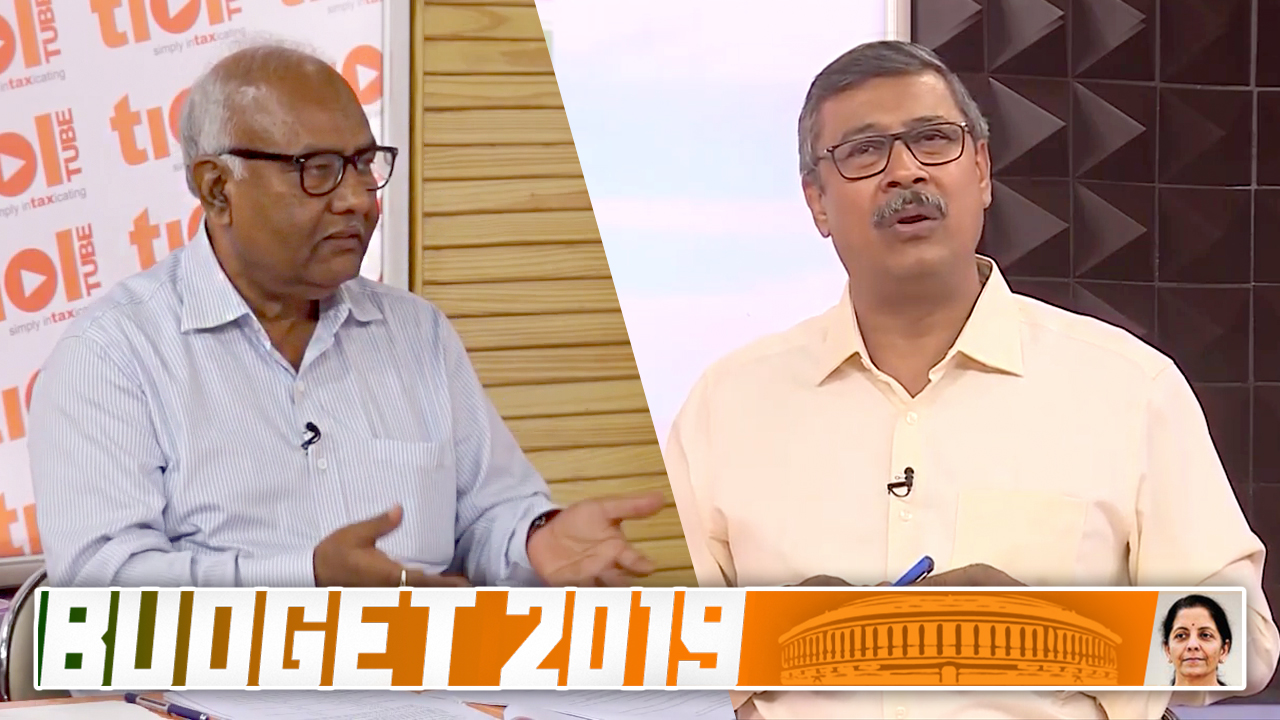|
SERVICE TAX
2019-TIOL-2092-CESTAT-DEL
CCE, C & CGST Vs Piyush Chawla
ST - The assessee is a cricketer - M/s. KPH Dream Cricket Pvt. Ltd. and franchisee (M/s KPH) raised a team of players and for that they had entered into an agreement with various players including the assessee - It was the franchisee who was responsible for appointing players for playing in different events organized by BCCI and others - The assessee entered into tripartite agreement with M/s. KPH and M/s. BCCI and he was engaged by the franchisee to play in different events for which he was paid remuneration - The players including assessee were also required to participate in the specially arranged promotional activities through media or others - According to department, assessee did not pay service tax against payments received for rendering taxable services in or in relation to IPL tournaments held during the financial years 2008-09 to 2011-12 and accordingly a SCN was issued to assessee - It is clear that the terms and conditions of agreement made the assessee employee of KPH - He was rather playing for KPH without having any independent entity - Whatever output/goals were achieved, were by the team as a whole and there could not be any quantification of any work done or service provided by assessee - He was simply a purchased member of team working under KPH - It is settled legal position that services provided by an employee, for the activities undertaken by the employer, for and under the instruction of the employer, cannot be termed as service provided by the employee - An identical matter titled as Sourav Ganguly 2016-TIOL-1283-HC-KOL-ST has been decided by Calcutta High Court in favour of cricketer - The High Court held that the Petitioner therein was not providing any service as an independent individual worker and his status was that of an employee - Therefore it cannot be said that the Petitioner was rendering any service which could be classified as Business Support Service - This Tribunal also in various decisions viz. Shri Karn Sharma, Swapnil Asnodkar 2018-TIOL-92-CESTAT-MUM & Umesh Yadav while relying upon the decision of Calcutta High Court in Sourav Ganguly's case have taken a similar view and held that the cricket player is not liable for service tax under Business Support Service - The remuneration received by assessee from the franchisee M/s KPH cannot be taxed as 'Business Support Service' and therefore, the appeal filed by the department is rejected: CESTAT
- Appeal rejected: DELHI CESTAT
2019-TIOL-2091-CESTAT-MUM
Qing Ambay City Developers Corporation Ltd Vs CCE & ST
ST - The assessee has obtained Service Tax Registration for services i.e. Restaurant Service, Accommodation in hotels, Inn clubs Service, Construction of Residential complex service and Event Management - Whether the assessee is liable for penalty for contravention of provisions of CCR, when admittedly the Cenvat Credit is reversed before the issuance of SCN - Since the assessee had sufficient balance in cenvat account therefore it cannot be said that they had utilised the same - It is not disputed that after it was pointed out by audit party the same was reversed by assessee immediately without even waiting for the SCN, therefore it cannot be said that there was any intention on the part of assessee to evade payment of tax or that they had utilised the amount credited - It is settled by catena of decisions that wrong availment of cenvat credit but non-utilising the same do not lead to any consequence - The High Court of Karnataka in the matter of Flextronics Technologies (India) Pvt. Ltd. 2015-TIOL-676-HC-KAR-CX while dealing with Section 11 AC of CEA, 1944 which is somewhat similar to Section 78(1) of FA, 1994 has held that to attract penalty as per the provisions of Section 11AC, the Revenue has to prove that the assessee has availed the Cenvat credit wrongly by reason of fraud or collusion or any wilful misstatement or suppression of facts - Revenue has failed to brought on record any evidence to prove fraud or collusion or wilful suppression on the part of assessee and the assessee by its conduct has proved that that there was no malafide intention on its part and it was only a bonafide error on the part of assessee, which was rectified immediately on pointing out by the audit party and therefore in these circumstances no penalty is imposable on assessee - The penalty imposed on assessee under Rule 15(3) of Cenvat Credit Rules read with Section 78(1) of FA, 1994 is set aside: CESTAT
- Appeal allowed: MUMBAI CESTAT
2019-TIOL-2090-CESTAT-HYD
CCT, C, CE Vs Quislex Legal Services Pvt Ltd
ST - The assessee is engaged in providing business auxiliary services - As a service recipient, assessee also paying service tax under the category of rent-a-cab services - A SCN was issued consequent upon an audit by department seeking to deny CENVAT credit availed on rent-acab services and event management services - The period involved was 2011-12 to September 2015 - On being pointed out by audit, assessee reversed the entire amount of credit along with applicable interest - The department argues that once the fact that the assessee has availed ineligible CENVAT credit is proven, the penalty cannot be set aside merely on the ground that they have reversed the CENVAT Credit before issue of SCN - Merely because service tax was paid or ineligible CENVAT credit was reversed prior to the SCN, it does not absolve the assessee from liability to penalty - The department's contention is that there was suppression of facts in this case - It is not in dispute that the assessee had regularly filed their ST-3 returns - The department's contention is that merely filing the returns is not sufficient but those returns should reflect the correct value of taxable services rendered which the assessee has not done in their case - They have not declared the details of CENVAT credit availed on different input services as the ST-3 returns do not provide for the breakup of the services rendered or the inputs/input services CENVAT credit availed - Clearly, there was a mistke by assessee in availing CENVAT credit - The department is free, while assessing returns, to call for further information and decide if there are errors/discrepancies - The impugned order is correct and does not suffer from any infirmity: CESTAT
- Appeal rejected: HYDERABAD CESTAT
CENTRAL EXCISE
2019-TIOL-2089-CESTAT-ALL
CC, CE & ST Vs Super Cassettes Industries Pvt Ltd
CX - Monetary limits in respect of appeals filed by the department before the CESTAT have been enhanced to Rs.20 lakhs by Board Instructions dated 11.07.2018 and also apply to pending cases - moreover, as per instructions dated 04.04.2018, the earlier exclusion category not covered by the litigation policy has now been included by removing sub-clause (c) of earlier instructions - as per the said sub-clause (c), adverse judgements pertaining to "classification and refunds issues which are of legal and/or recurring nature", were to be contested irrespective of the amount involved - Revenue appeal is, therefore, dismissed as per the litigation policy: CESTAT [para 3 to 6]
- Appeals dismissed: ALLAHABAD CESTAT
2019-TIOL-2088-CESTAT-KOL
Switz Foods Pvt Ltd Vs CCE
CX - Appellant is engaged in the manufacture of cakes and pastries [CTH 1905] Brand Name "Monginis" - appellant was selling their goods through M/s. Banami Enterprises - Departmental officers formed the opinion that the latter cannot be considered as a dealer since the appellant had substantial control over the said goods after its removal from the factory till its disposal; that although cakes manufactured by the appellant were sold at Maximum Retail Price (MRP) (fixed by the appellant) by M/s. Banami, they were found to pay to the appellant amounts after availing significant discounts - department officers came to the conclusion that the relationship between the appellant and M/s. Banami was in the nature of Consignment Agent and accordingly proceeded to re-determine the value in terms of Rule 7 of the Central Excise (Valuation) Rules, 2000 - demand confirmed by adjudicating authority, hence appeal before CESTAT.
Held: Perusal of the agreement entered does not reveal that M/s. Banami was acting as a consignment agent of the appellant - A consignment Agent is required to receive the goods manufactured and dispatch them to customers, identified by the manufacturer (Principal), accompanied by invoices issued on behalf of the manufacturer, however, perusal of the terms of agreement indicates otherwise - There is absolutely no restriction as to whom the goods are being sold further - The goods are sold under the invoices of M/s. Banami at MRP fixed by the appellant - there is, therefore, nothing on record to conclude that M/s. Banami was acting as a consignment Agent of the appellant - It is evident that the transaction between appellant and M/s. Banami is on Principal to Principal basis and hence, Excise Duty is to be paid only in terms of Section 4 (1)(a) of the Act - no justification for resorting to valuation in terms of Rule 7 of the Central Excise Valuation Rules, 2000 - impugned order set aside and appeal allowed: CESTAT [para 8 to 10]
- Appeal allowed: KOLKATA CESTAT
CUSTOMS
2019-TIOL-2087-CESTAT-MUM
CC Vs King Kaveri Trading Company
Cus - The assessee-company imported trailer parts such as wheel rims, axle & suspension - Provisional assessment was done as the proper officer intended to compute the levy of additional duties of Customs by adopting the maximum retail price - The order of the assessing officer was quashed by the Commr.(A), with the latter holding that the Packaged Commodity Rules 1977 were inapplicable to goods which were not pre-packaged - Hence the Revenue's appeal.
Held - Section 3 of Customs Tariff Act clarifies that no provision exists for ascertaining Retail Sale Price in same manner as provided for u/s 4A of the CEA 1944 - Section 4A has a clearly articulated purpose since its incorporation into the statute - Section 3 of the Customs Tariff Act 1975 was intended to ensure that valuation adopted for Customs purposes would conform to the price at which the goods are intended to be sold in packages that are statutorily required to carry such prices on them - Hence a declaration for Retail Sale Price would suffice for acceptance as value for computing additions duties of Customs - Therefore, there is no provisions for determining retail sale price in the event of disagreement by the proper officer of Customs with the declaration - Hence the adoption of another price by the proper officer of Customs does not constitute appropriate assessment - Thus, the Revenue's appeal lacks merit: CESTAT
- Revenue's appeal dismissed: MUMBAI CESTAT
2019-TIOL-2086-CESTAT-MAD
CC Vs Sam Gypsom Pvt Ltd
Cus - The amount involved in appeal filed by department is only Rs.62,142/- - As such, in view of the Government Litigation Policy and consequent to Board's Circular F.No.390/Misc./116/2017-JC , fixing the monetary limit for filing the appeal before the Tribunal by the Revenue at Rs.20,00,000/-, the appeal filed by the department is dismissed: CESTAT
- Appeal dismissed: CHENNAI CESTAT |








